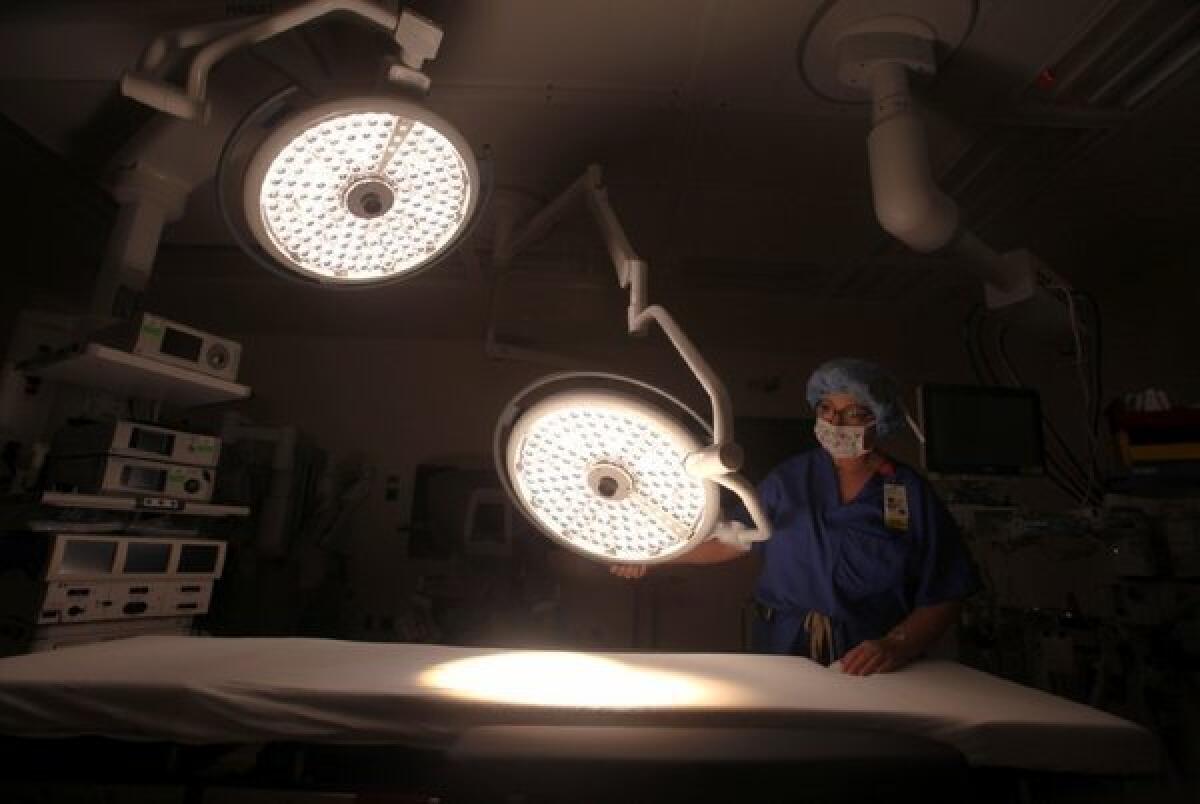Patient awareness during surgery is rare, physicians report

- Share via
It’s hard to imagine anything much scarier than waking up during surgery and realizing what’s going on.
The bad news: It happens.
The good news: Not very often — at least, in Britain — according to initial survey results detailed Tuesday in the journal Anaesthesia.
Working as part of the fifth National Audit Project of the Royal College of Anaesthetists and the Assn. of Anaesthetists of Great Britain and Ireland, the study’s coauthors sent a questionnaire about “accidental awareness” by patients during general anesthesia to all of the senior anesthetists in Britain. They got responses back from 7,125, or 82%, of the physicians they polled.
The doctors reported knowledge of 153 new cases of “accidental awareness” during general anesthesia in 2011, a rate of incidence between one out of 12,500 and one out of 20,000 — much lower than the one or two per 1,000 anesthesias reported in recent patient questionnaires, wrote lead author Dr. Jaideep Pandit and colleagues. That discrepancy could be due to underreporting by doctors, reticence to speak up on the part of patients or other factors, the team wrote.
Most of the patients were young or middle age. Nearly half experienced awareness after anesthesia began but before surgery; 23%, after surgery was over. Thirty percent reported being aware during surgery. The doctors reported that 38% of the patients with awareness “suffered pain or distress.”
Perhaps not surprisingly, awareness “experienced during surgery appeared more likely to result in pain or distress than did that experienced in the dynamic phases (induction and emergence) of anaesthesia,” the coauthors wrote.
The study reported that 19% of patients with awareness lodged formal complaints, and that 4% initiated legal proceedings. Crunching the numbers, the authors estimated that about one anesthetist out of 47 will hear of a new case of awareness each year and that a practicing anesthetist in Britain could expect to see one case of awareness every 36 years.
“Although we know that some patients do suffer distress after these episodes, our survey has found that the vast majority of episodes are brief and do not cause pain or distress,” Pandit said, in a statement.
The final report of the National Audit Project, which will include closer studies of patient experiences, will be released in 2014, the authors said.
Follow me on Twitter: LATerynbrown.




